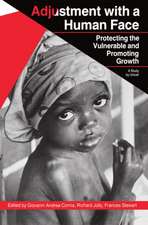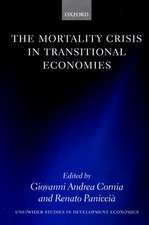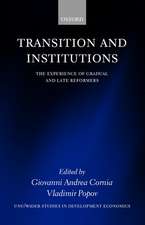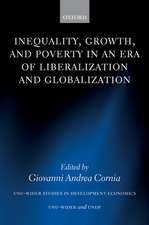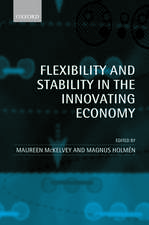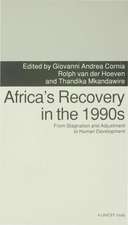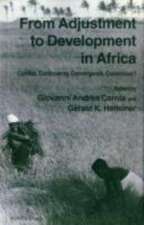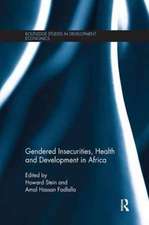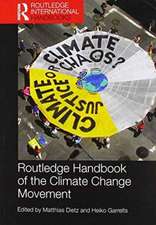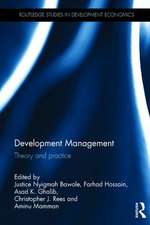Falling Inequality in Latin America: Policy Changes and Lessons: WIDER Studies in Development Economics
Editat de Giovanni Andrea Corniaen Limba Engleză Hardback – 15 ian 2014
Din seria WIDER Studies in Development Economics
- 30%
 Preț: 504.34 lei
Preț: 504.34 lei - 26%
 Preț: 733.49 lei
Preț: 733.49 lei - 30%
 Preț: 597.88 lei
Preț: 597.88 lei - 17%
 Preț: 594.16 lei
Preț: 594.16 lei - 7%
 Preț: 159.68 lei
Preț: 159.68 lei - 13%
 Preț: 737.02 lei
Preț: 737.02 lei - 17%
 Preț: 583.39 lei
Preț: 583.39 lei - 28%
 Preț: 473.92 lei
Preț: 473.92 lei - 30%
 Preț: 501.49 lei
Preț: 501.49 lei - 30%
 Preț: 724.70 lei
Preț: 724.70 lei - 31%
 Preț: 434.64 lei
Preț: 434.64 lei - 18%
 Preț: 333.97 lei
Preț: 333.97 lei - 34%
 Preț: 848.58 lei
Preț: 848.58 lei - 34%
 Preț: 848.33 lei
Preț: 848.33 lei - 34%
 Preț: 803.83 lei
Preț: 803.83 lei - 34%
 Preț: 954.23 lei
Preț: 954.23 lei - 34%
 Preț: 892.48 lei
Preț: 892.48 lei - 22%
 Preț: 188.78 lei
Preț: 188.78 lei - 30%
 Preț: 617.12 lei
Preț: 617.12 lei - 19%
 Preț: 333.48 lei
Preț: 333.48 lei - 27%
 Preț: 378.41 lei
Preț: 378.41 lei - 34%
 Preț: 1039.04 lei
Preț: 1039.04 lei - 34%
 Preț: 1043.37 lei
Preț: 1043.37 lei - 27%
 Preț: 329.58 lei
Preț: 329.58 lei - 34%
 Preț: 1291.62 lei
Preț: 1291.62 lei - 23%
 Preț: 1213.11 lei
Preț: 1213.11 lei - 34%
 Preț: 879.76 lei
Preț: 879.76 lei - 19%
 Preț: 652.21 lei
Preț: 652.21 lei - 34%
 Preț: 1039.69 lei
Preț: 1039.69 lei - 34%
 Preț: 892.84 lei
Preț: 892.84 lei - 27%
 Preț: 443.57 lei
Preț: 443.57 lei - 22%
 Preț: 526.33 lei
Preț: 526.33 lei - 30%
 Preț: 913.24 lei
Preț: 913.24 lei - 34%
 Preț: 998.62 lei
Preț: 998.62 lei - 31%
 Preț: 396.19 lei
Preț: 396.19 lei - 17%
 Preț: 413.16 lei
Preț: 413.16 lei - 34%
 Preț: 1188.77 lei
Preț: 1188.77 lei - 34%
 Preț: 817.30 lei
Preț: 817.30 lei - 30%
 Preț: 1012.76 lei
Preț: 1012.76 lei - 7%
 Preț: 360.77 lei
Preț: 360.77 lei - 31%
 Preț: 447.33 lei
Preț: 447.33 lei - 27%
 Preț: 1295.58 lei
Preț: 1295.58 lei - 31%
 Preț: 441.21 lei
Preț: 441.21 lei
Preț: 748.64 lei
Preț vechi: 1072.93 lei
-30% Nou
Puncte Express: 1123
Preț estimativ în valută:
143.27€ • 149.02$ • 118.28£
143.27€ • 149.02$ • 118.28£
Carte disponibilă
Livrare economică 11-17 martie
Preluare comenzi: 021 569.72.76
Specificații
ISBN-13: 9780198701804
ISBN-10: 0198701802
Pagini: 398
Ilustrații: 62 Figures and 90 Tables
Dimensiuni: 162 x 241 x 27 mm
Greutate: 0.75 kg
Editura: OUP OXFORD
Colecția OUP Oxford
Seria WIDER Studies in Development Economics
Locul publicării:Oxford, United Kingdom
ISBN-10: 0198701802
Pagini: 398
Ilustrații: 62 Figures and 90 Tables
Dimensiuni: 162 x 241 x 27 mm
Greutate: 0.75 kg
Editura: OUP OXFORD
Colecția OUP Oxford
Seria WIDER Studies in Development Economics
Locul publicării:Oxford, United Kingdom
Notă biografică
Since 2000, Giovanni Andrea Cornia has taught economics at the University of Florence. Prior to that he was the Director of UNU-WIDER and held research positions in various UN agencies. He has lectured in several Italian and foreign universities in both developing and developed countries and has been visiting professors or visiting scholars in six universities. Since 2010 he has been a member of Committee for Development Policies of the United Nations. His main research interests are in the field of development economics, and in particular in the fields of macroeconomics, inequality, poverty, and, political economy as well as food security, famines, and child wellbeing. In all these areas he has published extensively.



